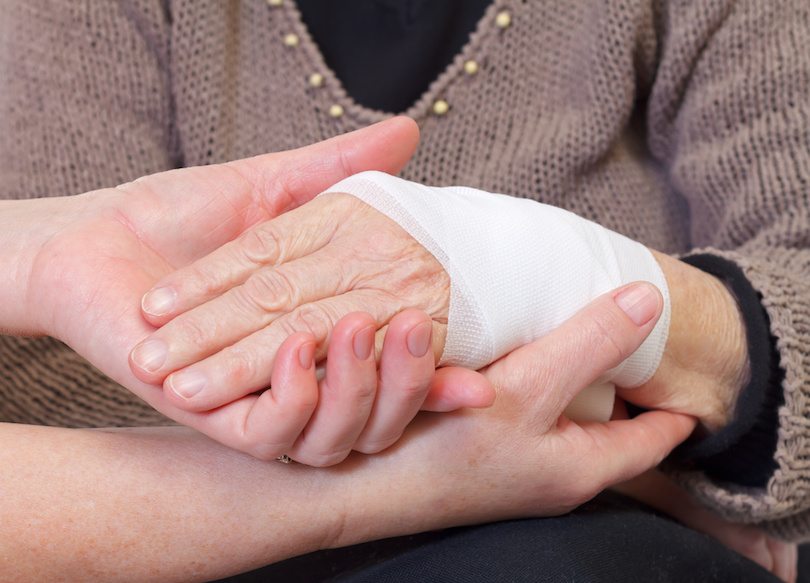If you’re concerned about infection, any break in the skin—from a major surgical incision to a small razor nick—is a big deal. Here’s how to properly care for yourself to minimize your risk and keep you on the road to recovery.
If you are caring for an incision from a recent injury or surgery
First and most importantly, plan to follow your doctor’s specific advice about caring for your wound, and to continue to follow it until he or she gives you an all-clear.
Before you touch the bandage, remove all your jewelry and clean your hands carefully. For tips on how to safely wash your hands, click here.
Then, assemble all your supplies — before you begin unwrapping the wound.
Use a medical glove to pull off the old dressing and put it into a waterproof plastic bag. If the dressing sticks to the wound, follow your doctor’s instructions for loosening it.
Wash your hands again before you clean the wound and put on new dressing.
Clean your wound as directed by your doctor, using either saline solution or mild soapy water, then use a soft cloth or piece of gauze to gently dry the wound.
Note any important changes to the wound: More redness, pain, swelling or discharge could be a sign of infection, as could a wound that suddenly appears larger or deeper. If anything seems wrong, call your doctor immediately.
Dress the wound in new bandages as you’d been instructed.
Wash your hands again when you are finished.
Double the plastic bag before depositing it into the trash.
If you hurt yourself at home, during recovery
If the bleeding is especially heavy or can’t be stopped after 10 minutes, call 911.
- If it’s a minor cut or puncture, wash your hands carefully before you try to treat the wound.
Then run the cut under cold water and wash with mild soap.
If necessary, use direct pressure to stop the bleeding.
Apply antibacterial ointment and a clean bandage that will not stick to the wound.
If the wound is serious, especially deep—requiring stitches—or if it was caused by an animal or human bite, a fishhook, or a rusty nail, call your doctor immediately.

